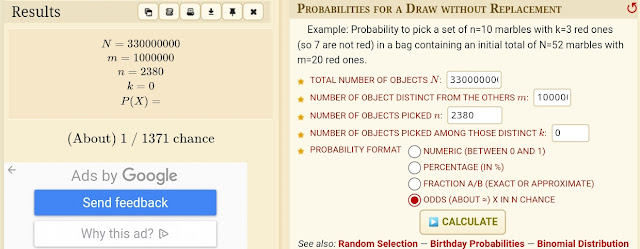A common feature of pseudoscientific discourse is to obsess over definitions - as if what you call something has any bearing on what it is. Two such ideas in particular stand out in the area of nucleic acid-based vaccination:
"Experimental gene therapy"
and
"It's not a vaccine".
Now, though I think these strategies particularly lame, I could also pick a fight with an empty room, so I am happy to tackle them on their own terms! The oddest part of these oft-twinned notions is that the first demands extension of a definition, while the second complains about that very same thing...
Experimental gene therapy.
Tacking 'experimental' on the front is evidently an attempt to discredit by a pejorative. Yet there is no sense in which these vaccines are still 'experimental'. They have completed Phase lll trials, in which two groups are respectively given the treatment or placebo (or, more generally, 'standard of care'), and relative benefit is assessed. Monitoring of participants in those trials is ongoing, as is perfectly proper, until 2023, but that does not mean that the Phase IV delivery of the vaccines is itself experimental. The technology is novel, for sure, but not experimental.
'Gene therapy', meanwhile, is a perfectly respectable strategy to repair or complement defective DNA genes in the host (that would be us, in this instance). There is no such gene target in either RNA or DNA vaccines - the 'gene' they supply is at best a gene of the pathogen, and the objective is to elicit translation of that nucleic acid into protein, not to repair or complement that gene. The use of mRNA in both cases still does not mean both are 'gene therapy', sensu strictu.
More recent gene therapies against cancer involve the engineering of viruses to selectively replicate in and invite immune attack of cancer cells. Here there is no host gene target as such - they "changed the definition", folks! - but this is more akin to infection or 'conventional' live-attenuated vaccination than to mRNA vaccination.
Regardless, in all cases to which 'gene therapy' is conventionally applied, there is a condition in the host to which the nucleic acid construct is targeted. This is embedded in the very meaning of the term 'therapy', which is clearly distinct from a preventative.
It's not a vaccine
Since my early adulthood, at university in the 1970s, I have always understood a vaccine to be a substance that invokes an immune 'memory' response to a pathogen-related antigen, such that, on subsequent exposure to the actual pathogen, the disease or its symptoms are attenuated or prevented. This accords with the use of the term by immunologists, and specialists in infectious disease.
But what do they know? Much is made of the fact that the American Centre for Disease Control (CDC) 'changed the definition' at some point. Whether they did or not is immaterial; they are not the keepers of the lexicon. They follow usage, they do not dictate it. But has usage changed? Not from where I sit.
Critics seem to think that a true vaccine must provide 'immunity', which they further appear to define as a binary state: something either everyone affected has for life, or no-one does. They understand 'immunity' as 100% protection from disease in every vaccinee. So if it does not give that 100% protection to every individual, "it's not a vaccine".
But...
1) On that definition the very first vaccine, that from which the entire class takes its name, was not a vaccine. Prior to Jenner's work, inoculation with live smallpox extracted from pustules was the highly risky strategy employed to elicit a protective immune response. Jenner discovered that protection could more safely be stimulated by cowpox pustules instead - the very root vacc- derives from the Latin for 'cow'. (As an interesting footnote, sequencing has revealed that at least some of the transfection was done using horsepox; maybe we should be arguing about equination). Importantly, this cowpox inoculation did not provide full immunity to smallpox. So Jenner's vaccination did not 'stop people catching or transmitting the disease' (another leaden phrase I'm sick of the sight of!) in that absolutist sense. It attenuated the disease state, but did not work on everyone, nor last a lifetime. Despite this 'imperfection', global eradication became possible.
2) To honour Jenner, Pasteur adopted the term 'vaccine' (or vaccin) for his rabies serum, despite it having nothing to do with cattle. This vaccine, as it happens, conferred much more of the quality understood as 'immunity' by laymen than Jenner's. It is not recorded whether there was a chorus of "Mais M. Pasteur, vous avez changé la définition de «vaccin»!".
3) Vaccines such as pertussis, which target a toxin rather than the pathogen, can still permit asymptomatic infection and transmission. Indeed many vaccines work on stimulating a response to the product of the pathogen, rather than the pathogen itself. These are 'toxoid vaccines', also including tetanus and diphtheria. Are they vaccines or "vaccines"?
4) If a vaccine's protection wanes with time, or its target evolves to render it less effective, this creates the absurd position that an injection was a vaccine when first administered, but is no longer.
5) Indeed this absolutist position - there must be 100% protection vs infection - renders the very concept of vaccine efficacy (VE) nonsensical. If protection must be 100% or it's not a vaccine, no vaccine can have a proportional efficacy by definition.
I suppose immunity could be regarded as a binary, but at the 'other end' of the scale: the 'zero' end. So, if protection against all parameters is zero, it might be reasonable to say something is 'not really a vaccine'. But if it offers some adaptive immune protection against a disease parameter - not necessarily infection itself, and not necessarily 100% - then it's a vaccine. That has not changed in decades.


Comments
Post a Comment